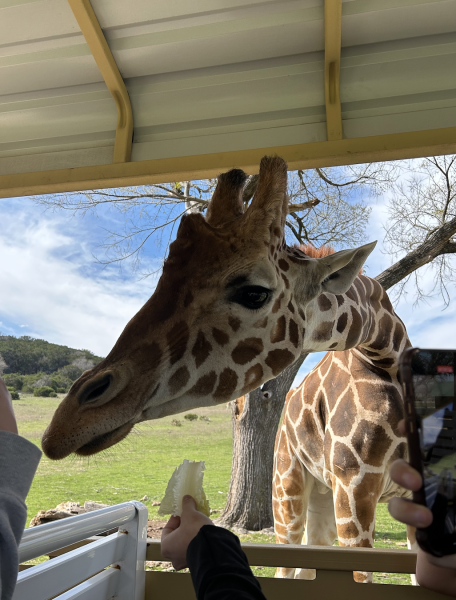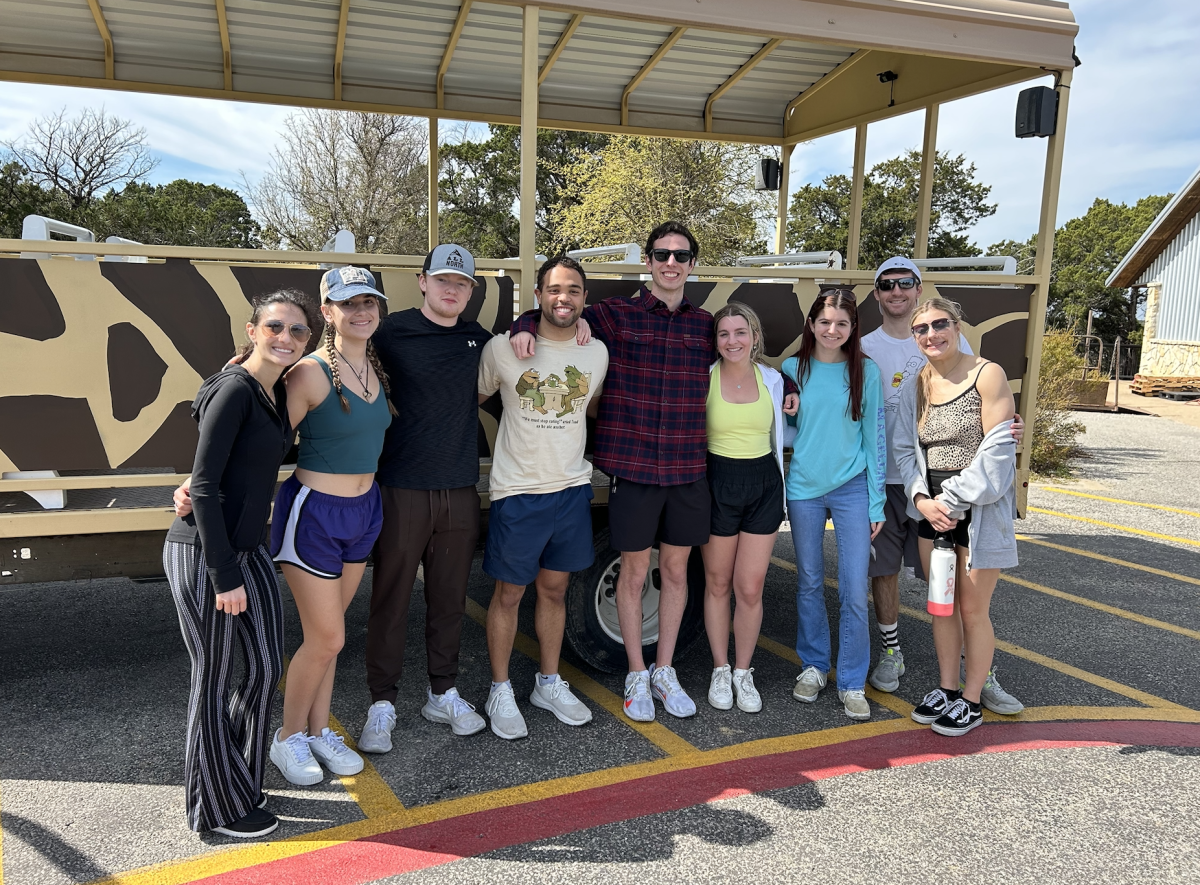In South Africa, around two rhinos are poached a day. TCU Director of the Institute for Environmental Studies, Dr. Michael Slattery, recognized this appalling fact in his home country of South Africa and turned to his students for help.
Slattery teamed up with renowned South African wildlife veterinarian and rhino conservationist Dr. Will Fowlds and Katie Lawton, a TCU 2021 graduate with a environmental science and biology degree, to bring light to this tragic reality.
Together, they launched the TCU Rhino Initiative in 2014 to help save and ensure the long-term survival of the rhinos in South Africa.
Ten years later, TCU Rhino Initiative has adopted a new name: Frogs for Wildlife.
Frogs for Wildlife
Frogs for Wildlife hopes to carry the legacy of the initiative, simply expanding its conservation efforts.
Recently, the organization has implemented more species, like an orangutan sustainability Halloween event in the fall, Kaitlyn Roussel, Frogs for Wildlife president, said. Roussel is a senior environmental science major with a minor in human-animal relationships.
Frogs for Wildlife will still host their annual Rhino Run on Sunday, March 24. The 5K and 1K events are put on to raise funds to return to the Amakhala Game Reserve in South Africa. The finishers of the run earn a beaded rhino medal created by the children who live in Amakhala, South Africa.
View this post on Instagram
The initiative club still intends to arrange trips with different wildlife sanctuaries around Texas, allowing students to be around various wildlife species and experience different avenues for caring for the wildlife.

One of the trips the Frogs for Wildlife is taking this spring semester is a trip to the Wild Animal Sanctuary, formerly called the International Exotic Animal Sanctuary, in Boyd, Texas.
The TCU Rhino Initiative
The initiative has organized campaigns to spread awareness, raised funds and supported ongoing protection and rescue initiatives where rhinos can be rehabilitated and integrated into their natural habitat.
Students started traveling to South Africa for the TCU Biodiversity and Human Development Study Abroad program in 2015, where they can get experience on the grounds of the game reserve.

“The goal of the program is that students not only get hands-on experience with animals but they also experience and are exposed to the complexities of managing wildlife in a human-dominated landscape,” Slattery said.
Students are returning to South Africa with the TCU Biodiversity and Human Development Study this July.
The work the TCU Rhino Initiative has done over the past decade on campus and hasn’t been just for the rhinos, which presents an opportunity to rebrand the initiative to Frogs for Wildlife, encompassing all animals.
Their hope with the new name is to grow the club and allow students interested in all species an opportunity to join, learn about and advocate for wildlife around the world.










